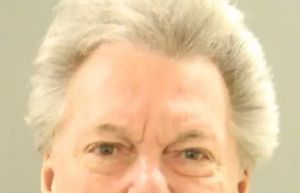A baby who had leukemia became the first person in the world to have been treated with a gene editing technique in order to fight the cancer - and she is now in remission, Reuters reported.
Layla Richards was diagnosed with infant acute lymphoblastic leukemia (ALL), which her doctors described as "one of the most aggressive forms of the disease" they had ever seen. Layla was immediately treated with chemotherapy to fight the cancer. She was also given a bone marrow transplant to help replenish her blood cells.
However, her doctors at the Great Ormond Street Hospital (GOSH) eventually ran out of treatment options and recommended palliative care.
"Doctors don't want to say that there's nothing we can do and offer palliative care, but sometimes that's the only option," Layla's mom, Lisa, said in a news release. "We didn't want to accept palliative care and give up on our daughter though so we asked the doctors to try anything."
An experimental treatment, which had only previously been done in a laboratory, was suggested for the baby. The treatment involved the use of T-cells that were modified using molecular "scissors" called Talen. The T-cells were modified to behave in two ways: to hide from the leukemia drug in Layla's body because it would kill them, and to specifically fight against leukemia cells.
The technology was developed through the collaboration of experts from GOSH, University College London (UCL) and Cellectis, a biotech company.
After only several weeks of treatment, Layla showed signs of improvement. At present, her cancer is in remission.
"As this was the first time that the treatment had been used, we didn't know if or when it would work and so we were over the moon when it did. Her leukemia was so aggressive that such a response is almost a miracle," Dr. Paul Veys, Layla's lead doctor and director of bone marrow transplant at GOSH, said in the news release.
Waseem Qasim, a professor of cell and gene therapy at UCL and consultant immunologist at GOSH, said it is too early to say that the treatment will work on all children.
"But, this is a landmark in the use of new gene engineering technology and the effects for this child have been staggering," Qasim said. "If replicated, it could represent a huge step forward in treating leukemia and other cancers."
The results and details of Layla's case will be presented at the annual meeting of the American Society of Hematology in Orlando.
© 2026 HNGN, All rights reserved. Do not reproduce without permission.








